CATTALES
Inside
Storm watch: An interview with Paul Kovacs 3


Wawanesa Insurance & Institute for Catastrophic Loss Reduction partner to provide six wildfire prevention grants 4
City of Calgary receives ICLR’s Resilience in Recovery Award for Resilient Roofing Rebate Program 5 ICLR
Board of Directors
ICLR celebrates its 25th anniversary



Canada’s property and casualty insurers created ICLR 25 years ago anticipating the need for science to support effective resilience action against severe weather and earthquakes. Industry thought leadership about preparedness for extreme events includes an ongoing commitment to build capacity for the rigorous study of critical perils and development of risk reduction solutions.
This milestone was celebrated October 18 with an event at Western University’s WindEEE Research Facility. Attendees representing ICLR member companies, faculty and students at Western, research partners and other friends of the Institute helped celebrate the occasion.
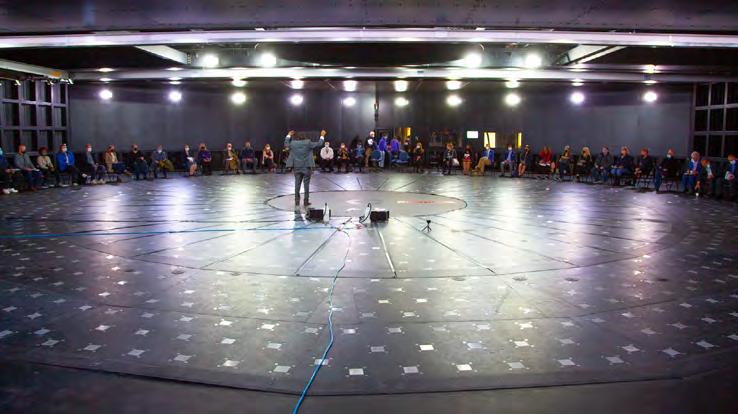
Along with speeches from ICLR Executive Director Paul Kovacs; Board Chair
Carol Jardine, President of Canadian P&C Operations, Wawanesa Insurance; and Western University President Alan Shephard, guests enjoyed hands-on exhibits demonstrating basement flood, extreme wind and hail damage risk reduction, part of the Institute’s new Climate Resilience Centre.
The event culminated in the creation of tornadoes and downbursts in WindEEE’s huge test chamber. Attendees were keyed up to watch the genesis of a tornado before their very eyes and the demonstrations led by Dr. Girma Bitsuamlak, Professor of Wind Engineering and Director of the WindEEE Research Institute, became the talk of the event. >
Volume 16 • Issue 5 September/October 2022
e-newsletter of the Institute for Catastrophic Loss Reduction
this issue
•
• Western
• Intact
• Western
• SCOR
• Aviva
• ICLR
Kroll • Munich Re Canada
Ningen • Swiss Re
Taylor • Gore Mutual
Taylor • OMIA
Shrubsole • Western
• Co-operators
Carol Jardine (Chair)
Wawanesa Ken Coley
Debbie Coull-Cicchini
Matt Davison
Olivier Gay
Phil Gibson
Paul Kovacs
Claus
Monica
Andy
John
Dan
Rob Wesseling
At this important time in its history, ICLR extends its thanks to Carol Jardine and the other members of the ICLR Board of Directors, past and present, for their unwavering support and thoughtful guidance. We also extend our thanks to the 120 member insurers and many government agencies that support our work.
A special thanks goes to ICLR staff and research associates as they demonstrate every day their commitment to build resilience in Canada based on science.

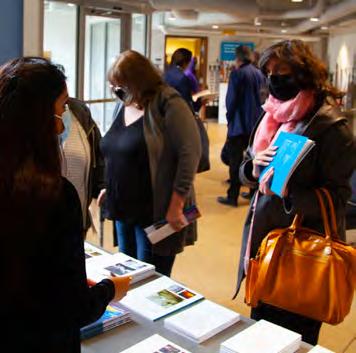
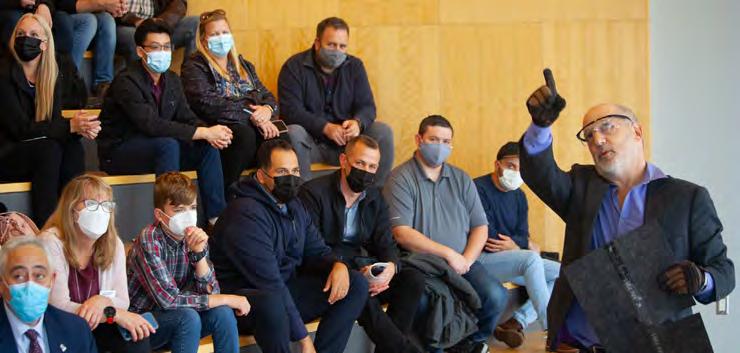
ICLR celebrates its accomplishments of the first 25 years with a keen sense of the need to implement solutions in the years ahead.

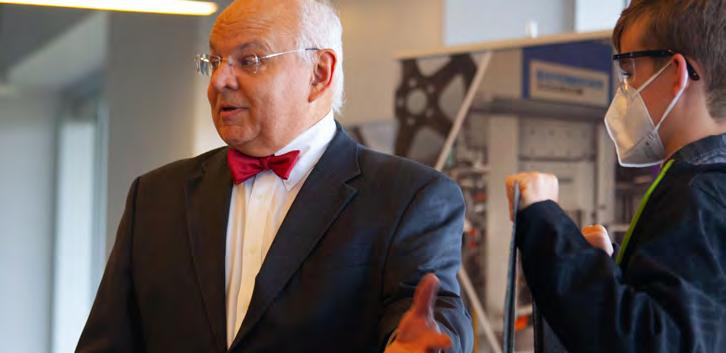
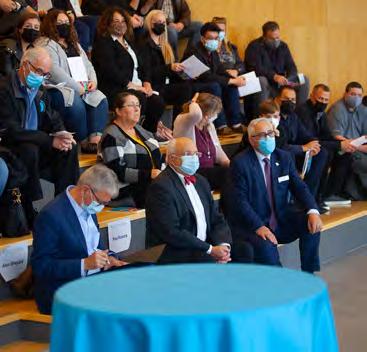

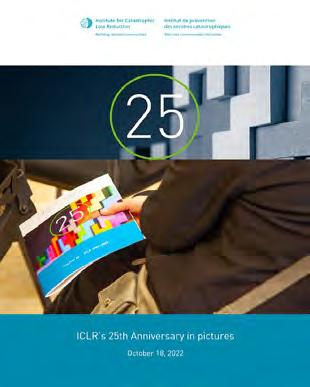
2
Download “The first 25” here and “The 25th Anniversary in pictures” here
Storm watch
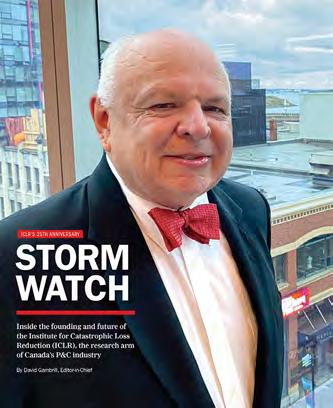
cu | How was the Institute for Catastrophic Loss Reduction founded?
ICLR’s story started in 1992, when Hurricane Andrew struck near Miami. That event led to more insurance companies becoming insolvent than in any other single event since the 1906 San Francisco earthquake. There was a message in Canada and globally to the insurance industry: are you prepared for what the weather or a large earthquake might do to your company and your industry?
cu
| What happened next?
At that time, I joined the Insurance Bureau of Canada (IBC) to focus on the question: could a large event cause insurance companies in Canada to go insolvent?
The IBC put together a team of insurance company CEOs; I was hired to be the staff lead. Three things came out of our research. First, an earthquake could really threaten the industry, and quite a few things needed to be done to be better prepared. Second, in 1992, a consensus emerged that the weather was changing. Several groups in our industry were talking about climate change and what that would mean in terms of expecting more frequent and severe claims. Third, the Canadian insurance industry did not have enough knowledge to manage these risks effectively. So, the CEO group went back to the IBC and said, ‘We should set up a group to focus on the science.’ The group would give ongoing advice to the P&C insurance industry and serve as a link between the industry and government and others thinking about catastrophic earthquakes and the changing climate.
cu | What were the early expectations of ICLR?
Our understanding was that the P&C industry and the government wished to support ICLR’s research. So, we set up ICLR in a way that it was independent from the IBC. Second, to qualify for government research funding, ICLR is affiliated with a university. In our first year, 1997-98, we had a competition, inviting universities to bid to be our host. The winning university was Western, and they gave us access to resources to support our research program. IBC represents privately owned insurers, and one innovative feature of our structure is that we also included public insurers from the very beginning.
cu | What was the original mandate of ICLR?
The industry approved four long-term goals. First and foremost, we would focus on science and research. Second, we would find researchers in other institutions, in other universities, and government researchers working on issues of interest to the P&C industry and develop relationships with them. Third, we would bring everything we learned back to the P&C insurance industry. So, we started appearing at industry conferences. Then we got into webinars, and now we have a lot of publications and an insurance advisory committee. The fourth focus was to reach out to the public.
cu | How did this mandate evolve?
In the beginning, [we] focused on three of the four areas. The board recognized ICLR was not ready to reach out to the public until we had a better sense of the information they needed to know.
So, one of the early evolutions was to get ready to talk to the public. Over the years, we’ve gained a lot of knowledge about the best things to do if you want to build community resilience. We have opinions on all the really important hazards facing Canadian society and the insurance industry. We’re very comfortable now giving advice to the public about how we can become a more resilient society.
cu | Is there a specific example of this public consultation?
One example is Calgary in 2020. They had a terrible hailstorm, the most costly in the country. We had a conversation with Calgary, and we developed a three-part program. One part involved active communications with the public based on ICLR’s HailSmart program. We said, ‘You should install a hail impact-resilient roof, and you should put your car in the garage if a storm’s coming. Here’s how you can reduce the risk.’ Second, we helped the city set up a rebate program. The city said to everybody who had hail damage in that storm, ‘If you ask us, we’ll give you an extra $3,000 to build back better and >
3
This interview with ICLR Executive Director Paul Kovacs appeared in Canadian Underwriter, October 2022
install an impact-resilient roof so that you’re ready for the next storm.’ That program was incredibly popular and brought our advice into action. Now we have a couple of thousand homes in Calgary with hail impact-resistant roofs. Third, we suggested to the province, ‘Let’s change the building code. All the new structures in Calgary that go up in areas with high risk of hail should have an impact-resistant roof when they’re first built. That should be part of the new building code.’ That part of the program is ongoing.
cu | What’s next for ICLR?
Starting this year, our 120 member insurers asked ICLR to take on a bold new role. Now, in addition to our role as the premier disaster research institute in Canada, we are actively working to encourage decision-makers to implement our findings. This involves pressing to include science-based resilience action in building codes and new construction, sharing risk reduction best practices for existing structures, and support from ICLR’s Resilience in Recovery team for communities that build back better
following a major loss. The ICLR team is excited to support the leadership of the Canadian insurance industry to champion science-based risk reduction for seismic and climate extremes, and proud of our accomplishments through our first 25 years.
Wawanesa Insurance & Institute for Catastrophic Loss Reduction partner to provide six wildfire prevention grants
The Wawanesa Mutual Insurance Company (Wawanesa) has partnered with the Institute for Catastrophic Loss Reduction (ICLR) and collaborated with FireSmartTM Canada to offer a new community wildfire prevention grant. Wawanesa and ICLR will make available six grants of up to $15,000 each to help communities across Canada increase their resilience to wildfire through prevention and mitigation activities.
“Climate change is here and one of the most destructive implications is the increased threat of wildfires,” said Carol Jardine, President of Canadian P&C Operations for Wawanesa. “As a Canadian owned and operated mutual company, we want to help communities across Canada improve their climate resilience and protect themselves, their homes and their businesses. That’s why we are working with experts at ICLR and FireSmart Canada to reduce the risk of wildfires and help make communities across Canada safer and more resilient.”
These grants will support prevention, mitigation, and preparedness activities aligned with FireSmart Canada’s seven disciplines:
• Education
• Emergency planning
• Vegetation management
• Legislation
• Development
• Interagency cooperation
• Cross training
“From 2008 to 2021, wildfires have cost Canadian insurers more than $4.6 billion, with over 87,000 claims filed. This represents only a portion of the overall costs caused by wildland fires, as uninsured public infrastructure is damaged, lives are disrupted, and individual health – both physical and mental – is affected,” said Paul Kovacs, Executive Director of the Institute for Catastrophic Loss Reduction. “Wawanesa’s leadership in supporting grants targeted at preventing and mitigating the impacts of wildfires will help communities increase their resilience to this increasingly prevalent peril, serve as learning opportunities for other communities wishing to take action, and reduce the immense personal toll wildfires have on people and businesses across our country.”
“FireSmart Canada is happy to provide support for and input towards Wawanesa’s Community Wildfire Prevention Grants,” said Ray Ault, Director of FireSmart Canada. “This is an important initiative that will help Canadians increase their wildfire resilience.”
Grant applications must be received before December 1, 2022 at 12 p.m. CST and will be evaluated by a committee of wildfire prevention subject matter experts from Wawanesa, ICLR, and FireSmart Canada. Grant recipients will be announced on March 1, 2023.
Interested community groups can visit the program webpage for project eligibility and application criteria at wawanesa.com/ wildfire-grants. Communities across Canada are now welcome to apply.
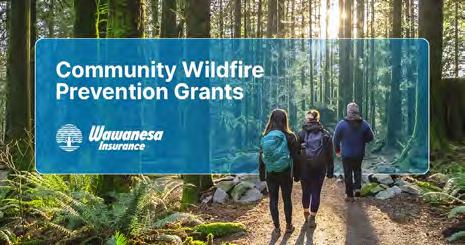
4
City of Calgary receives ICLR’s Resilience in Recovery Award for Resilient Roofing Rebate Program
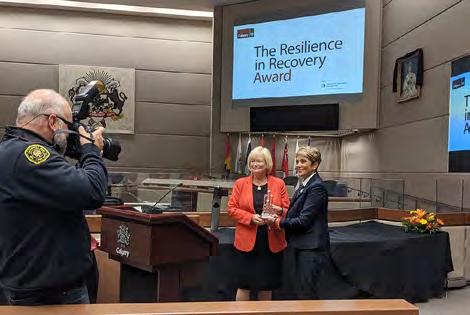
While Calgary routinely experiences hail storms in the spring and summer months, the hail storm experienced in June 2020 was one of the costliest storms in Canadian history. As a result, The City launched the Resilient Roofing Rebate Program to incentivize citizens to consider impact-resistant roofing products to help protect homes and build a more resilient city.
“The Resilient Roofing Rebate Program was born out of a time of great need within our city. Severe damage to our homes and buildings from the June 2020 hail storm changed our rebuild strategy to help Calgarians switch to roofing materials that can withstand more extreme weather events,” says Mayor Jyoti Gondek. “The program was a win-win for both Calgarians and the climate and I want to thank the Institute for Catastrophic Loss Reduction for recognizing Calgary’s forward-thinking initiative.”
The program, which educated Calgarians about impact-resistant roofing materials and incentivized property owners to replace their damaged roof to install certified Class 4 impact-resistant roofing products through a $3,000 rebate was awarded the first-ever Resilience in Recovery award from the Institute for Catastrophic Loss Reduction on October 13.
“The award recognizes Calgary for its progressive actions, milestone
(Right) ICLR’s inaugural Resilience in Recovery award.
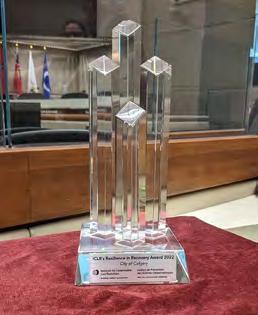
achievements, and significant uptake of its resilience programming by Calgary residents,” says Paul Kovacs, executive director of the ICLR. “Calgary’s comprehensive strategy resulted in three key outcomes: increased public awareness of the risk of loss and proven protective actions, damaged homes rebuilt with enhanced protection, and advocacy for change in construction practices and regulation.”
The Resilience in Recovery Award was created by the Institute for Catastrophic Loss Reduction (ICLR), Canada’s leading disaster research institute, to celebrate the leadership of communities like Calgary, that increase awareness about climate resilience and create high-impact programs to build back better after a severe weather event.
Institute for Catastrophic Loss Reduction
Mission
To reduce the loss of life and property caused by severe weather and earthquakes through the identification and support of sustained actions that improve society’s capacity to adapt to, anticipate, mitigate, withstand and recover from natural disasters.
20 Richmond Street East Suite 210 Toronto, Ontario M5C 2R9
T 416-364-8677
F 416-364-5889 www.iclr.org www.PIEVC.ca
Class 4 impact-resistant roofing is designed to survive greater impacts than standard products and come in a variety of materials including asphalt shingles, clay or concrete tile, metal, and recycled rubber. By program end in May 2022, 1,600 rebates were awarded to homeowners who upgraded their roof using impact-resistant materials.
In addition to the program, The City is championing a proposal for regulatory improvements which would introduce an impact rating for asphalt shingles and ensure enhanced installation requirement for roofing in Alberta. The proposed code change would address the impact of hail at a regional level and apply to the 2026 National Building Code cycle.
Western University
Amit Chakma Building, Suite 4405 1151 Richmond Street London, Ontario, Canada N6A 5B9
T 519-661-3234 F 519-661-4273 www.iclr.org
5
(Left) ICLR Board Chair Carol Jardine, President of Canadian P&C Operations, Wawanesa Insurance, presents Calgary Mayor Jyoti Gondek with the Institute’s inaugural Resilience in Recovery Award for the city’s resilient roofing rebate program.

















